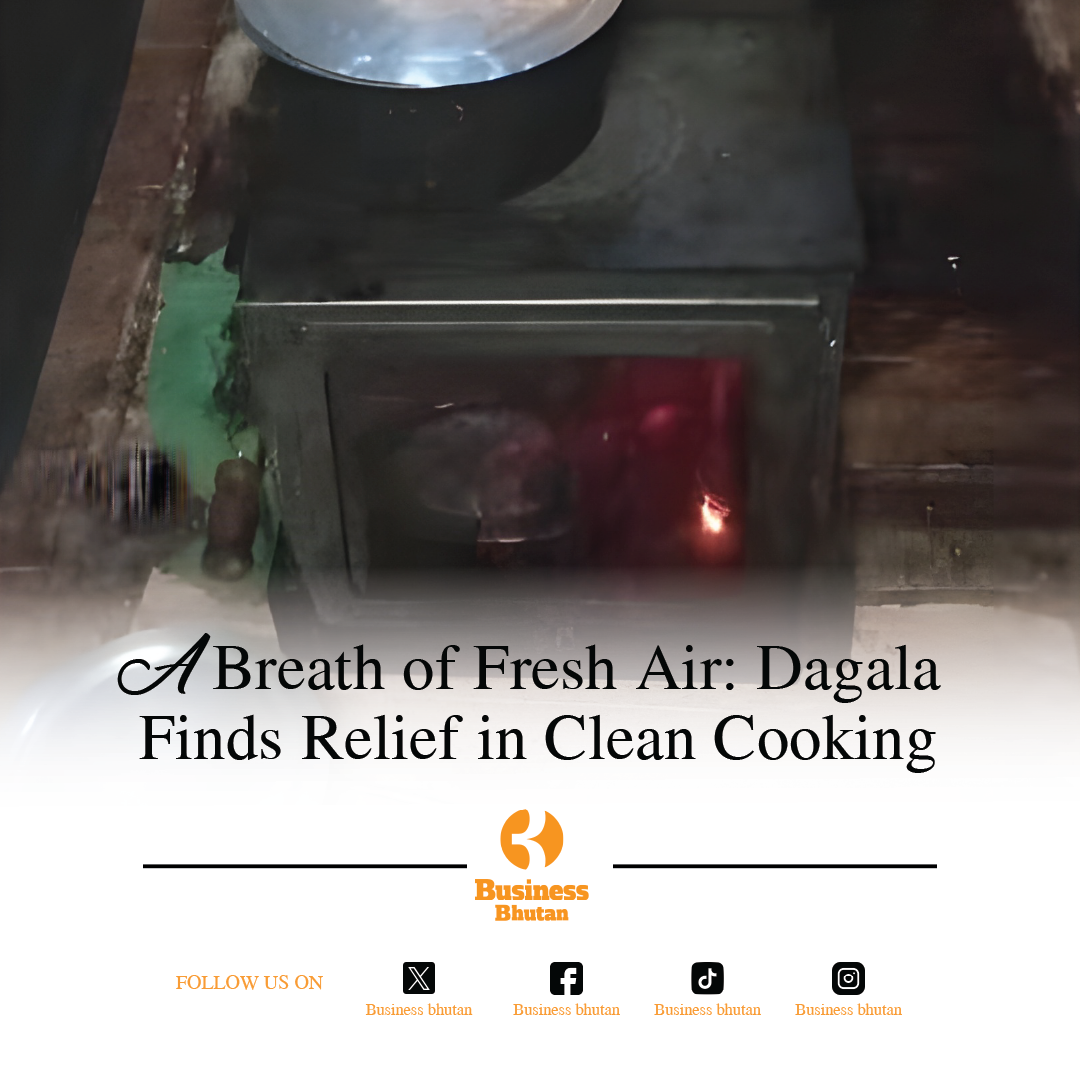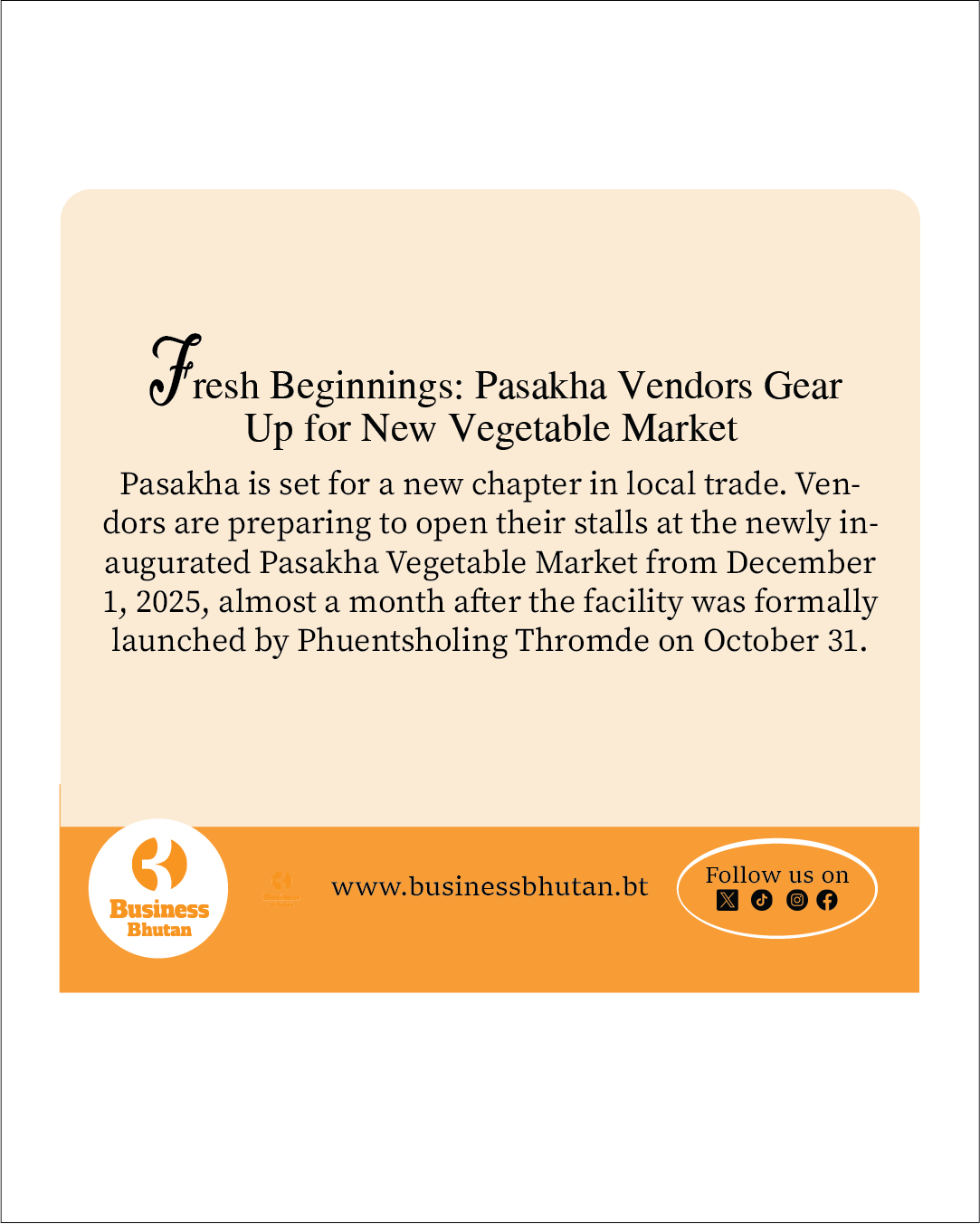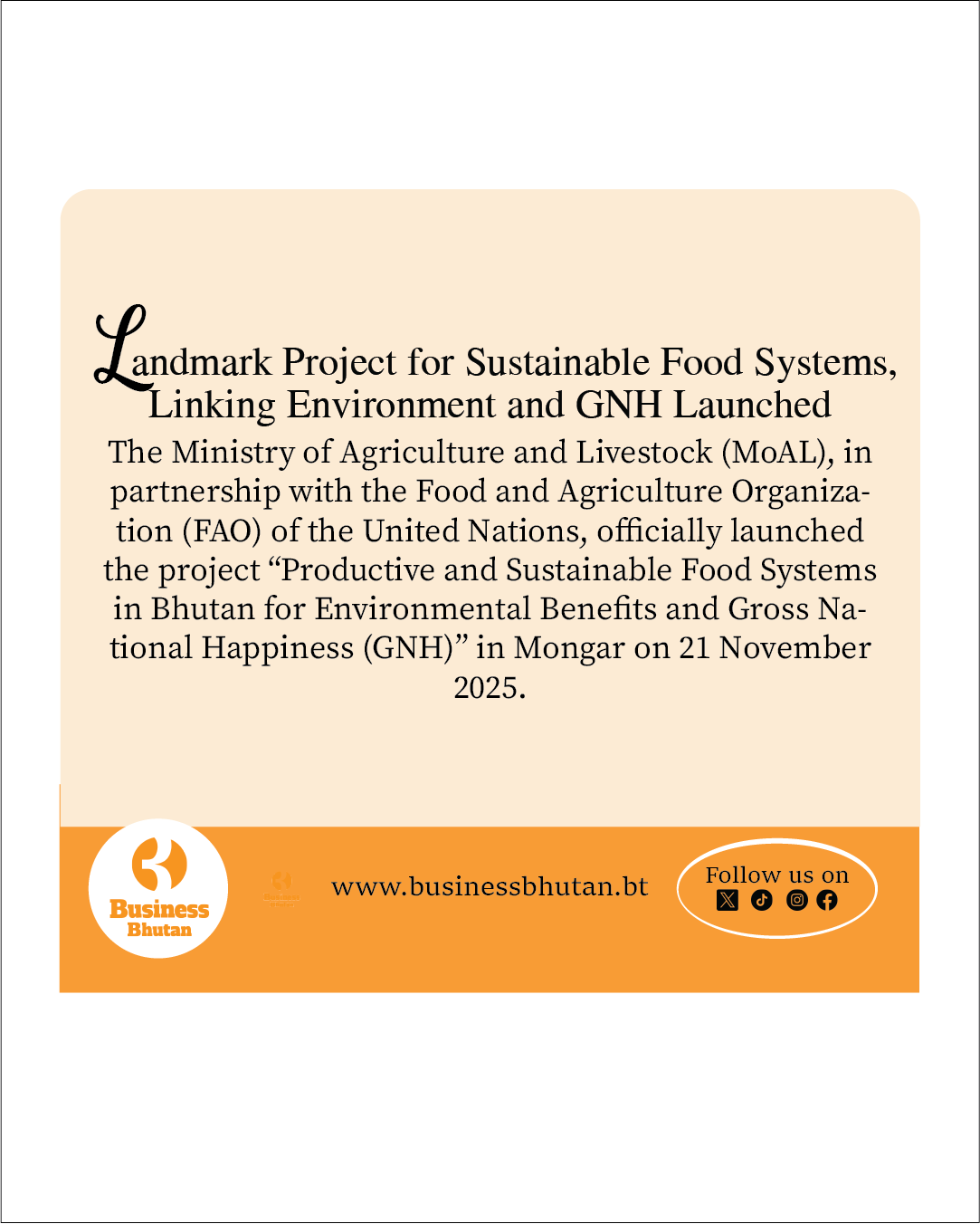For 38-year-old Nakem, a housewife from Dagala Gewog in Thimphu Dzongkhag, mealtime once meant suffocation. Each day, smoke from her traditional mud stove filled the kitchen, stinging her eyes and lungs. Her young child, too small for school, often sat beside her, coughing in the smoke-filled air.
But life changed at the end of August 2025, when Nakem received a Himalayan Rocket Stove, provided by the International Centre for Integrated Mountain Development (ICIMOD) under its Clean Energy for Better Air: Gender & Health Inclusivity Project.
“I no longer have to struggle with smoke every time I cook,” she said, smiling as she stirred a pot over the new stove. “Now, my child can breathe easier, and I can serve food to my guests without embarrassment.”
Dagala. also known as Dakarla, is one of eight gewogs under Thimphu Dzongkhag. Spread over 85 square kilometers, it is home to 178 households and 814 people. Reaching the village from Thimphu requires a five-day trek across steep climbs and narrow paths.
Even today, Dagala remains untouched by road or electricity. Families depend on solar panels for light and rely on firewood-fed mud stoves for cooking.
Cooking on these stoves is not just time-consuming – it is dangerous. “It affects the health of women and children most,” Nakem explained. “My eyes and lungs suffered, and the children were always more vulnerable.”
The smoke not only harmed health but also invaded every corner of village life. Clothes hung indoors absorbed the acrid smell. Food carried a smoky aftertaste. Furniture, walls, and even kitchen utensils were coated with a greasy black film. “Sometimes, I felt ashamed to serve food to guests,” Nakem admitted softly.
The villagers’ concerns echo a global crisis. According to the World Health Organization (WHO), smoke from inefficient cooking stoves—often called “the killer in the kitchen”—causes 3.8 million premature deaths every year. Linked to pneumonia, stroke, heart disease, chronic obstructive pulmonary disease (COPD), and lung cancer, indoor air pollution is one of the deadliest household hazards worldwide.
Further, men like Kencho Gyeltshen also felt its impact. “Cooking with wet firewood in summer is the hardest,” he said. “It takes so much time, and the smoke makes everyone sick. Children and women suffer most, but men are affected too.”
The Himalayan Rocket Stove, introduced in five households in Dagala through a lucky draw, has given families more than just a cooking tool – it has given them hope for a healthier and safer way of life. Unlike the traditional mud stoves, which belch thick plumes of smoke and devour bundles of firewood, the Rocket Stove is designed with efficiency and sustainability at its core. Its high-combustion chamber burns fuel at hotter temperatures, ensuring that firewood is consumed more completely, releasing far less smoke into the home.
For women like Nakem, this means cooking in a kitchen where the air is clear and breathable, no longer clouded by fumes that once stung the eyes and choked the lungs. For children, it means growing up in homes where their small, developing lungs are not constantly assaulted by toxic smoke. And for the community as a whole, it signals a gradual shift towards conserving the forests that surround Dagala – because with the Rocket Stove, families need significantly less firewood to prepare their daily meals.
The stove is more than just a household appliance; it is a quiet revolution in an isolated gewog where every stick of firewood is carried on tired backs from the forest, where every cough of a child carries the weight of preventable illness, and where every meal once came with a hidden cost to health and dignity.
Dagala’s tshogpa, Kinga Zangmo, believes the stoves will transform village life. “We can now use even thick, hard firewood without filling our homes with smoke,” she said. “This will protect women and children, improve hygiene, and reduce our dependence on firewood.”
ICIMOD’s Gender and Natural Resource Management Specialist, Dr. Kamala Gurung, emphasized that the stoves are not only about cooking – they are about dignity and equality. She explained that in rural communities like Dagala, women and children often carry the heaviest burden of traditional cooking practices. Women spend hours each day crouched over smoky fires, their eyes watering and lungs straining, while children either help in the kitchen or accompany their mothers on long, exhausting trips to collect firewood.
“Indoor air pollution is directly linked to respiratory diseases such as asthma, bronchitis, and COPD. By reducing smoke exposure, we are reducing health risks. At the same time, women and children will spend less time and effort collecting firewood, giving them more freedom for education, rest, or income-generating activities.”
In August 2025, during a National Consultation Workshop in Thimphu, villagers were also trained to build Rocket Stoves using local clay. Supported by ICIMOD, JSW Law, Local Government-Haa, and the Himalayan Rocket Stove initiative, the training ensures that this technology can be replicated across Bhutan without relying on external supply.
For villagers like Nakem, the stove represents more than just clean cooking – it means progress. “Now, my meals taste delicious again. I can welcome guests without hesitation,” she said. “Most importantly, my child will grow up breathing clean air.”
Dagala’s journey is long – its trails are steep, its nights dark without the glow of electricity -but its people have always been resilient. Now, with innovations like the Himalayan Rocket Stove, this remote gewog is taking a small but powerful step toward change. The stove is more than a convenience; it is a symbol of possibility. It means mothers no longer have to choke on smoke as they cook. It means children can grow up breathing cleaner air. It means families can save firewood, easing the strain on the forests that protect their watershed and way of life.
Most importantly, it restores a sense of dignity. In kitchens once stained with soot, meals can now be shared with pride. Guests can be welcomed without hesitation. Women, often silent bearers of invisible burdens, can reclaim time, health, and respect. From the smoke-filled kitchens of the past to the promise of clean, sustainable energy, the people of Dagala are breathing easier, and dreaming bigger.
Sangay Rabten from Thimphu




![Fresh Beginnings: Pasakha Vendors Gear Up for New Vegetable Market - Duplicate - [#16963] Fresh Beginnings: Pasakha Vendors Gear Up for New Vegetable Market - Duplicate - [#16963]](https://businessbhutan.bt/wp-content/uploads/2025/11/Asset-200.png)











